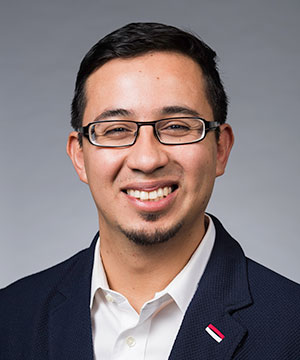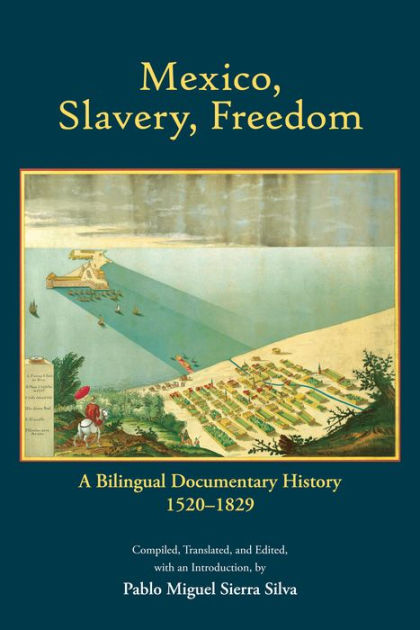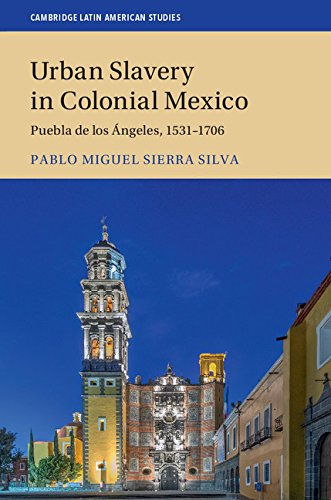
Pablo M. Sierra Silva
Associate Professor of History
PhD, University of California, Los Angeles, 2013
- Office Location
- 461 Rush Rhees Library
Office Hours: Monday, noon-2 p.m.
Research Overview
Interests: African Diaspora, Latin American, Caribbean and Atlantic History
My research is centered on the experiences of Africans and their descendants in colonial Mexico (New Spain), the Caribbean and Atlantic during the sixteenth, seventeenth and eighteenth centuries. I am particularly interested in decentering traditional narratives by highlighting afro-indigenous interactions, interrogating archival practices and emphasizing microhistorical approaches to afrodescendiente history.
My first book, Urban Slavery in Colonial Mexico: Puebla de los Ángeles, 1531-1706 (Cambridge Press, 2018), reassesses the dynamics of the transatlantic slave trade to the city of Puebla and establishes that at least 20,000 people were sold in its slave market during the seventeenth century. By focusing on distinctly urban spaces (the textile mill, the convent and the marketplace), I propose a spatial understanding of slavery in Spanish American cities. Urban Slavery also demonstrates that by the end of the seventeenth century enslaved Afro-Poblano families and their allies had successfully eroded the foundations of slaveholder power.
My second monograph project, “In the Wake of the Raid: Blackness, Piracy and the 1683 Sack of Veracruz,” examines the violent dispersal of over 1,000 people of African descent across various Caribbean and Atlantic settlements following Laurent de Graaf, Nicholas van Hoorn, and Monsieur Grammont’s devastating attack on the port of Veracruz (in modern-day Mexico). Tracing the involuntary dispersal of this free and enslaved population to early Charleston (South Carolina), Petit-Goâve (Haiti) and other coastal communities opens new avenues of research on Caribbean piracy, the Black Atlantic and the circum-Caribbean. The raid also reveals the necessity and complexity of centering women’s history in buccaneering communities. This ongoing project is supported by the National Endowment for the Humanities, the John Carter Brown Library, the Ferrari Humanities Research Award and the Folger Institute. My preliminary research for this project was published as “Afro-Mexican Women in Saint-Domingue” in Volume 100 of the Hispanic American Historical Review (see below for full reference).
Primary Sources and Pedagogy
I am a firm believer in the power of the primary source. To this end, I compiled and edited Mexico, Slavery, Freedom: A Bilingual Documentary History, 1520-1829 (Hackett Publishing, 2024). The book was awarded the American Historical Association's J. Franklin Jameson 2025 award for outstanding achievement in the editing of historical sources. The volume features a collection of 118 documents with transcriptions of the Spanish originals and modernized English translations. An accessible introductory essay and timeline allows readers to situate three centuries of enslavement with a Mexican context. I profoundly believe in sharing the documents and sources that inform shared histories of struggle and empowerment in Mexico, the United States and beyond. I am happy to facilitate workshops at all levels (K-8, high school, Upward Bound, undergraduate and graduate, postdoc, community collectives, etc). For more information or sample documents, please write me at pablo.sierra@rochester.edu.
My graduate and undergraduate students in History, Latin American Studies and Black Studies are a constant inspiration for course creation. As a result, I have developed twelve courses on the Latin American region, the African diaspora, and historical methods during my time at the University of Rochester. I hope to develop several more in coming years.
Digital Scholarship
The graduate and undergraduate students of Digital Paleography (HIST 250/450) and I have developed a digital project on the 1630 Foreigner Registry of Cartagena de Indias (in modern-day Colombia). The digital analysis of the “Abecedario” reveals the movements and strategies of transimperial and multilingual communities, especially for those of Portuguese descent. The project is also meant to encourage students to pursue research (individual and collective) in Spanish and Portuguese-language databases. An interactive map and annotated transcription of this remarkable document is currently under construction with the assistance of the URochester Digital Scholarship Department.
I am also part of a multi-institutional research team (led by the University of California and the Instituto Nacional de Antropología e Historia, INAH) that is developing the first database on enslaved people and their movements in colonial Mexico.
Latin American, Caribbean and LatinX Studies
I am thrilled to serve as an advisor for the University’s Latin American minor and for the new Latin American, Caribbean and LatinX Studies (LACX) initiative. For more information on the minor and the History courses that count for LAS, please write me directly and visit: https://www.sas.rochester.edu/lacx/undergraduate/minor.html.
In the near future I will also develop an oral history and archival research project on the history of sport in modern Latin America. I teach (and greatly enjoy) my course on the history futebol/fútbol/soccer and its social, political, cultural and economic implications on Brazil, Mexico, Uruguay, Colombia, Argentina, Haiti and many other nations.
Graduate Research Fields
I offer the following fields for graduate research: Colonial Latin America, African Diaspora, Caribbean History, Atlantic History, Ethnohistory, Modern Latin America, Iberian Overseas Expansion, Comparative Slavery. For more information on our MA and PhD programs, see our graduate program page.
Latin American history is an emerging strength in our PhD program. With this in mind, I welcome both international and national applicants. Please feel free to reach out to me if you have questions about the graduate application process. I especially encourage applications from students with reading fluency in Spanish, French, Portuguese and other foreign languages.
I am accepting new graduate student advisees for our MA and PhD programs.
Courses Offered (subject to change)
- HIST 150: Colonial Latin America
- HIST 151: Modern Latin America, 1821-2014
- HIST 154: History of Latin America Through Soccer (1867-2014)
- HIST 200: Gateway - Mexico through Time (1325-1800)
- HIST 248/248W: The African Diaspora in Latin America, 1804-2009
- HIST 250: Digital Paleography: Deciphering Early Modern Spanish
- HIST 251/251W: African Diaspora in Latin America, 1500-2000
- HIST 255/W: 1492 and Beyond: Identity, Culture and Society in Colonial Latin America (co-taught with Prof. Ryan Prendergast, MLC/Spanish program)
- HIST 299H: UR Research: History and Your Project
- HIST 350W/450: Captives: Past, Present and Future
- HIST 386W/486: The Other Atlantic: Ethnohistory, Memory and Chronicle
- HIST 387W/487: Black Mexico
Selected Publication Covers


Selected Publications
- "De Veracruz (1683) a Cartagena (1697) con escala en Saint-Domingue: una reinterpretación de la piratería a través de dos episodios afrocoloniales," Perspectivas Afro, Vol. 4, no. 2, 2025
- Mexico, Slavery, Freedom: A Bilingual Documentary History, 1520-1829. Indianapolis: Hackett Publishing Company, 2024.
- “Afro-Mexican Women in Saint-Domingue: Piracy, Captivity and Community in the 1680s and 1690s.” Hispanic American Historical Review 100, No. 1 (Feb. 2020): 3-34.- winner of the 2021 James Alexander Robertson Prize
- Urban Slavery in Colonial Mexico: Puebla de los Ángeles, 1531-1706. Cambridge: Cambridge University Press, 2018.
- "Portuguese Encomenderos de Negros and the Slave Trade within Mexico, 1600-1675" Journal of Global Slavery 2, Vol. 3 (2017): 221-247.
- “The Slave Trade to Colonial Mexico: Revising from Puebla de los Ángeles, 1590-1640.” In From the Galleons to the Highlands: Slave Trade Routes in Spanish America. Edited by Alex Borucki, David Eltis & David Wheat. Albuquerque: University of New Mexico Press, 2017.
- “The Persistence of the Slave Market in Seventeenth-Century Central Mexico” Slavery & Abolition 37, no. 2 (June 2015): 307-333. Co-authored with Tatiana Seijas.
- "From Chains to Chiles: An Elite Afro-Indigenous Couple in Colonial Mexico, 1641-1688" Ethnohistory 62, no. 2 (April 2015): 196-219.
